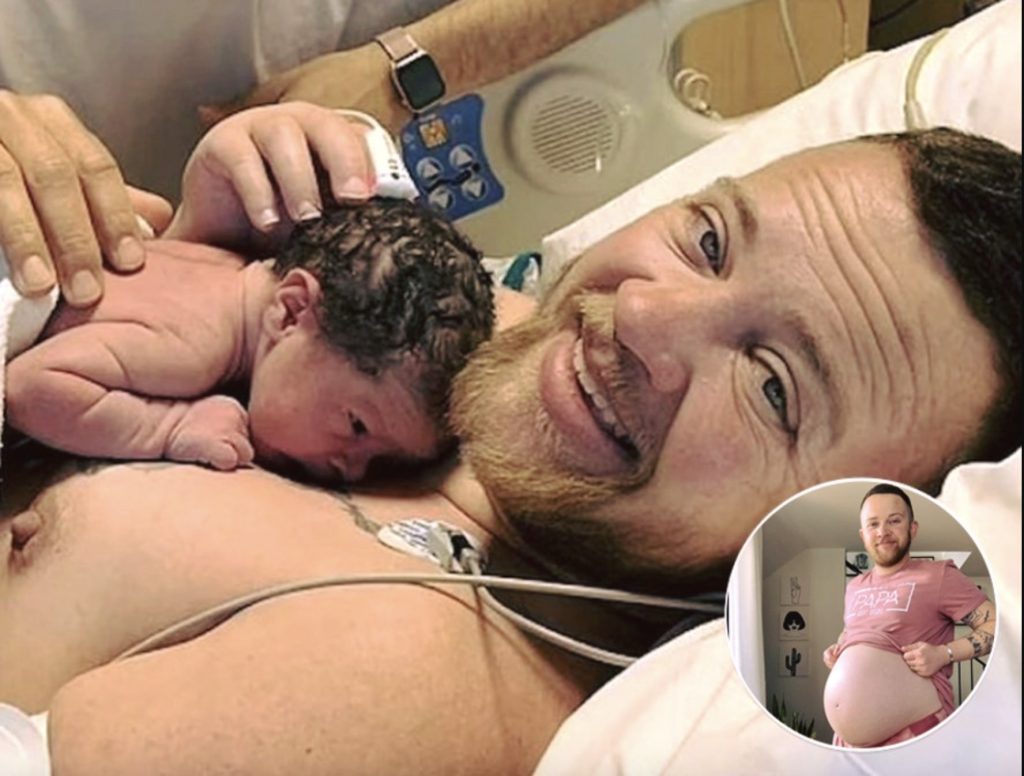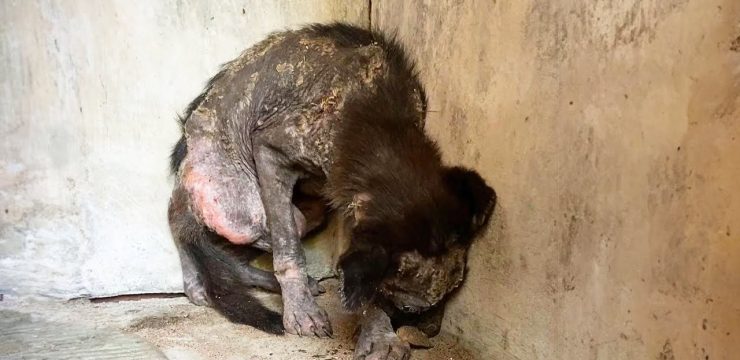These days, one of the most meaningful ways to show respect for others is by using their preferred name and pronouns. Whether someone identifies as straight, gay, transgender, or non-binary, honoring how they choose to express themselves affirms their identity and dignity. Still, not everyone has embraced this practice. Some people continue to follow outdated societal norms, while others simply disregard the importance of using appropriate gender identities.

Bennett Kaspar-Williams, a 37-year-old from Los Angeles, became a parent in October 2020 when he gave birth to his son, Hudson, via cesarean section. He was supported throughout the process by his husband, Malik. At the time, Bennett identified as male and used he/him/his pronouns, though he now identifies as non-binary and uses both he/him/his and they/them pronouns. Despite clearly identifying as a man during his hospital stay, Bennett encountered challenges that left a lasting impression — particularly the repeated misgendering by medical staff, who continuously referred to him as a mother instead of a father.
Bennett’s journey toward parenthood began years earlier. He first realized he was transgender in 2011 and started his transition in 2014. Several years later, he and Malik decided they wanted to grow their family. Knowing that this would involve Bennett stopping his testosterone therapy so his ovaries could begin functioning again, the couple took their time to carefully weigh their options. Though Bennett had undergone top surgery, he had not pursued any procedures on his lower body. After deep personal reflection, he felt at peace with the idea of carrying a child himself.
When they began trying to conceive, Bennett became pregnant naturally and relatively quickly. “We had only been trying a short while, so we expected the process to take longer than it did,” he explained. However, their joy was soon accompanied by anxiety as the COVID-19 pandemic hit. “This was just about a week before we went into lockdown here in March 2020, so my high spirits were pretty quickly replaced by anxiety around the pandemic and how I would keep myself and my baby safe,” he recalled.
While the experience of pregnancy was deeply fulfilling for Bennett, it was also marked by disappointment, especially in how he was treated by the medical system. The persistent misgendering he experienced made the process emotionally challenging. “The only thing that made me dysphoric about my pregnancy was the misgendering that happened to me when I was getting medical care for my pregnancy,” he said.
Even though Bennett clearly stated his gender on all medical forms, the nursing staff continued to refer to him using the wrong pronouns and labeled him as “mom” instead of “dad.” This repeated oversight reflected a deeper issue in how the medical system often fails to account for trans and non-binary individuals’ needs and identities. After Hudson’s birth, Bennett became more vocal about the need to separate traditional ideas of gender from the experience of childbirth.
In an interview with the New York Post, he expressed how distressing it was to be constantly misgendered during such a personal and transformative moment. He emphasized that society needs to move away from the idea that motherhood and womanhood are interchangeable terms. “The business of pregnancy — and yes, I say business, because the entire institution of pregnancy care in America is centered around selling this concept of ‘motherhood’ — is so intertwined with gender that it was hard to escape being misgendered,” Bennett shared.
He went on to point out that just because someone is born with a uterus doesn’t guarantee they will conceive or carry a child. “No one can ever really know whether having children is possible until you try — being born with a uterus doesn’t make conceiving or carrying a certainty,” he explained. This understanding shaped how he and Malik approached their journey into parenthood.
That’s why Bennett believes it’s essential to shift away from defining womanhood solely through the lens of motherhood. “It’s a false equivalency to say that all women can become mothers, that all mothers carry their children, or that all people who carry children are mothers,” he said. These assumptions can be limiting and harmful, especially for people who don’t fit into traditional molds but still desire to raise a family.
Today, Hudson is a thriving three-year-old, and both Bennett and Malik feel incredibly grateful to be his parents. Their family stands as a testament to love, resilience, and the importance of honoring individual identity in all its forms. Bennett’s story continues to resonate with many people, especially those who have felt unseen or misunderstood by society’s narrow definitions of gender roles.
By choosing to embrace parenthood in a way that felt true to himself, Bennett not only expanded the conversation around gender and family but also reminded the world that identity and biology don’t always align in ways that fit neatly into society’s expectations. His story is both powerful and deeply human, shedding light on the ways we can all do better when it comes to respecting how others identify — not just in words, but in action.
This story is more than just a personal journey; it’s a call for empathy, understanding, and change. What do you think about Bennett’s experience? Share your thoughts in the comments and join the conversation. Everyone deserves to be seen, heard, and honored for who they truly are.





